- Home
- Melissa de la Cruz
The Ring and the Crown
The Ring and the Crown Read online
BOOKS BY MELISSA DE LA CRUZ
THE BLUE BLOODS SERIES
Blue Bloods
Masquerade
Revelations
The Van Alen Legacy
Blue Bloods: Keys to the Repository
Misguided Angel
Bloody Valentine (a Blue Bloods novella)
Lost in Time
Wolf Pact (a Blue Bloods eBook original)
Gates of Paradise
Blue Bloods: The Graphic Novel
THE WITCHES OF EAST END SERIES
Witches of East End
Diary of the White Witch (an eBook original prequel)
Serpent’s Kiss
Winds of Salem
THE RING AND THE CROWN SERIES
The Ring and the Crown
Copyright © 2014 by Melissa de la Cruz
Designed by Tanya Ross-Hughes
Title illustration by Mario Hugo
Cover photograph (model) © Ali Smith
All rights reserved. Published by Hyperion, an imprint of Disney Book Group. No part of this book may be reproduced or transmitted in any form or by any means, electronic or mechanical, including photocopying, recording, or by any information storage and retrieval system, without written permission from the publisher. For information address Hyperion, 125 West End Avenue, New York, New York 10023-6387.
ISBN 978-1-4231-8774-5
Visit www.hyperionteens.com
Contents
Title Page
Books by Melissa de la Cruz
Copyright
Dedication
The History of the Crown
Eleanor's Dream
The Lily Throne
1. Dark Enchantress
2. House Aquitaine
3. New York Doll
4. The Spare Prince
5. A Countess Scorned
6. Vanities
7. Cottage in the Sky
8. The Princess and the Pauper
9. The Once and Future Queen
10. The Invisible Girl
11. The One That Got Away
12. The Last Waltz
13. The Gilded Cage
14. His Fair Lady
15. No Stranger to Heartbreak
16. A Fool's Game
The London Season
17. Friends of the Blanket
18. Changing of the Guard
19. Consolations
20. A Friend in Need
21. Eligible Bachelors
22. Flying Away
23. Time to Shine
24. Bloom Is off the Rose
25. The Princess Dauphine
26. The Kronprinz
27. A Decent Proposal
28. Gift Horses
29. Runaway Bride
30. Vernissage
31. Regrets Only
32. The Queen's Road
33. Monarch and Merlin
34. Lady Caller
35. Midnight in the Garden
36. Gauntlet and Duel
Wedding Belles
37. Aftermath and Escape
38. Flower in the Attic
39. Rot and Rotgut
40. Mean Streets
41. Long Live the King
42. The Marriage Plot
43. The Duke's Ward
44. Good Night, Sweet Prince
45. Of Kings and Consorts
46. The Ring and the Crown
About the Author
For Princess Mattie
This book owes an empire-sized debt to my lord husband, Mike of Johnston; my lovely editors, Duchess Emily Meehan & Lady Laura Schreiber; my agent, Viscount Abate; my dear friends Countess Margaret Stohl and Baron Bosch; and the royal and loyal court of Disney • Hyperion. Love and thanks from your humble servant.
In 1429, the English army and its formidable magicians were led to victory by their Merlin, Emrys Myrddyn, defeating Charles VI of France and his dark witch, Jeanne of Arkk. Henry VI was crowned King of England and France.
Since the fifteenth century, the sun has never set on the Franco-British Empire. It is the most powerful in the world, with vast holdings in Asia, Africa, Australia, and particularly North America, its rich territories comprising sixty provinces.
Almost five hundred years later, the one-hundred-and-fifty-year-old Queen Eleanor II is at the end of her reign. Her daughter Marie-Victoria, the Princess Dauphine, must marry and conceive an heir to carry on the line.
A marriage has been arranged between Marie-Victoria and Leopold VII, the Kronprinz of Prussia, the empire’s most dangerous enemy. Truce has been called after the Battle of Lamac, which ended the Franco-Prussian War.
The engagement will bring peace to the Continent, and will be announced and celebrated at London’s annual Bal du Drap d’Or, where eligible ladies are introduced to society and presented at court.
The season opens at the beginning of the twentieth century, during what will be known in history as the height of magic’s golden age.
There are two of them, bent over their dolls. One is small and sickly; the other is strong and tall. Their backs are turned to me, so that I can only see the delicate bones of their necks underneath their ponytails. The girls. While they play they are singing to each other, a song that the music master has taught them on the harpsichord.
Their singing stops. They have noticed my presence. The girls turn, and I can see their faces now.
One is pale and thin, her eyes a waterless blue, their color fading.
One is merry and bright, her eyes a vibrant hue, their color blinding.
After a moment they turn back to their play, ignoring me.
Except now there is no more singing—only the darkness of the room as the curtains close against the light, and the dream fades.
Two girls.
One beautiful and strong.
One plain and powerless.
Only one shall be queen…
And the other shall serve her.
But as I awake from sleep, I still do not know—
Which one of them is my daughter?
And which one is the traitor?
A half unconscious Queen—
But this time—Adequate—Erect,
With Will to choose, or to reject,
And I choose, just a Crown—
—EMILY DICKINSON
Who run the world? Girls!
Who run this motha? Girls!
—BEYONCÉ,
“RUN THE WORLD (GIRLS)”
The streets of London were so much more crowded than she remembered. It was as if everything in the city had multiplied. The buildings were taller and closer together, rows of red brick houses next to the new tall, skinny, cement ones with slate roofs; and there were so many people jostling on the sidewalk, elbow to elbow, shoulder against shoulder, a great army of pedestrians marching purposefully to who-knows-where. For a moment, she felt claustrophobic and trapped; lost, adrift, and alone in a sea of humanity. Her senses were assaulted from every direction: smokestacks belching into the gray sky, newsboys yelling the headlines, the salty-tangy smell of fried fish from the sidewalk vendors. It had only been four years since she’d left the city, but it felt like four decades, and Aelwyn Myrddyn stood in the middle of it all, clutching tightly the battered leather valise that contained all she had in the world. The bag was heavy with bottles of herbs, tonics, and potions from Avalon.
“All right, miss?” the driver asked, tipping his hat in her direction.
She hesitated for the briefest moment, feeling a pang in her heart. She thought of Viviane waving a solemn good-bye from the shore, her golden hair shining through the mist. For a moment, Aelwyn wondered if she had made the right decision in returning to the city of her childhood. When Aelwyn had turned s
ixteen, Viviane had told her that it was time to determine her fate. Magic users had two options when they came of age: to join the invisible orders, or to choose exile in Avalon.
“Miss?” the driver asked again.
“Yes, quite all right,” she said, thinking of the letter in her pocket from her father. She squared her shoulders and nodded. The driver’s orders were to take her to the palace directly, but she had persuaded him to stop a few blocks away. She wanted some time to walk by herself, to see the city up close, before she disappeared behind the black iron gates of St. James Palace. Aelwyn watched as the driver whistled and shook the reins, which were connected to an empty harness hanging in the air. The black horseless carriage rolled away slowly down the street and disappeared all at once with a thunderclap and a cloud of white smoke. Viviane’s hansoms were a rare sight in the city, and so a few pedestrians blinked in surprise; but most hardly missed a step, and were more concerned with getting out of the way of the newfangled automobiles that were clogging the narrow roads.
“Need a hand?” asked a nearby gent, his eyes lingering over the curve of her form underneath the cloak. “That bag looks heavy, lass.”
She shook her head and pulled the cowl over her mass of auburn curls. The ability to command male attention was its own kind of magic, but one that could backfire on a girl if she wasn’t careful. Aelwyn had learned caution during her time away from home, and not to waste her charms on unworthy candidates. The nubby fabric of her wrap was cozy and comforting; the cloth was handspun, and reminded her of the island and the simple pleasures of life there. She had given them up to return to this metropolis.
As a child, she had not been allowed out of the palace very often; but, after the first few moments of terror and disorientation, she had navigated her way easily, using the tall tower spires of the castle as a guide and beacon through the crowded streets. Now, everywhere she looked, there were banners hanging from balconies, and storefronts were flying the red-and-blue flags of the empire. They were remnants of last week’s victory celebration for the soldiers and magicians, who were finally home from the long war against the Prussian kingdom—although “victory” was a bit of a misnomer. The smaller nation had wrestled the mighty empire to a bit of a truce, a standoff. But in any event, the war was over—and that was indeed something to celebrate.
She walked along the mall, a broad boulevard lined with flowering trees, pretty shops, and gardens, stopping once in a while to peek into dusty book emporiums and bakeries with Cornish pasties in the windows. This is what she wanted—to live in the moment, to live in London again, to matter. She had cherished her experience in Avalon, but couldn’t imagine living there for the rest of her life as a person out of time, living in an endless present. Alone and apart from the world, she would have watched the ages going by through her aunt’s crystal glass. Avalon, for all its glories and beauty, was not enough. She was her father’s daughter, after all.
During her exile she had yearned for the city, like a missing limb. She wanted to experience all it had to offer: live in the great palace, participate in the hectic preparations for the coming season, and dance at the Bal du Drap d’Or, the Ball of the Gold Cloth—an annual gala to commemorate the unification of the two kingdoms and the foundation of the empire. She wanted to see the queen again. Emrys’s magic might be the shield of the realm, but Eleanor was its center, its great beating heart.
Aelwyn took a shortcut down an alley that led directly to the royal mews, heading toward the side and back entrances for staff, ministers, and courtiers. The elaborate and heavily guarded front gates and reception halls were reserved for honored guests only. Here she slowed down her pace, nervous about seeing her father again. Four years ago, he had sent her away as if she had been nothing to him; as if she’d been just a girl from the kitchens, and not his only daughter. She knew she had done something wrong by losing control of her powers and starting a fire, and she understood expulsion was the only punishment the court would accept for the threat and harm done. But because Emrys never once wrote her while she was away, never once indicated that she was forgiven, Aelwyn had taken her banishment to heart.
In his letter, Emrys had invited her back to the palace, but she was still apprehensive about their reunion. When she was younger, she had sobbed bitterly at their parting; and while she was almost grownup now, as well as Avalon-trained, thinking about him made her feel like that sad girl once more. She wasn’t that much different, really, from the group of street kids—grubby little urchins with dirty faces—that had just emerged from the back of a fry shop into the alley. “Want some?” one of them asked with a grin, holding out mushy peas wrapped in greasy newsprint. She shook her head with a smile, and he shrugged, turning back to his meal and accidentally bumping her shoulder.
“Oh, excuse me!” she said, dropping her bag. But when she leaned over to pick it up, it was no longer there.
It was gone.
She stood there, staring at the ground, and realized she had been had. That bump had been no accident. She looked up to see the little thief running away with it, his food scattered everywhere. “STOP!” she cried, horrified. “STOP, boy!” But he paid no attention to her, darting into the busy streets, weaving quickly through the crowd, and was soon lost in a sea of dark coats, hats, and parasols.
Her precious stones, tonics, and herbs. Viviane’s crystal glass: her treasured inheritance from Avalon. Aelwyn pushed up her sleeves, hiked up her skirts, and ran after the little criminal, pushing gentlemen to the side and stepping on ladies’ toes. Her face flushed with anger and embarrassment. Had she looked that much like a rube? Like such an easy mark? It shamed her to think she had been robbed the minute she set foot in London. Her aunt had cautioned her, had ordered the driver to see her safely into the palace, and Aelwyn had only her stubbornness to blame.
She saw the boy ahead of her—he was about to turn the corner—and once he did, she knew he would be lost, her valuables gone forever if she did not act. There was no other recourse. She had to do it. The boy had given her no choice.
She stopped running and forced her heartbeat to slow, her breath to steady. She closed her eyes and focused. She had seen him for the briefest moment when he’d offered her a bite. She touched the stone she wore around her neck—obsidian, deep as midnight—and called up his face in her memory.
His grubby little face; the face of a young street beggar, a naughty boy with shifty cold blue eyes; an operative of a local syndicate, working for a Fagin who was sure to be lurking somewhere, taking whatever he stole and stringing him along with a pittance. She concentrated and called up her memory of his eyes, and looked through them into his soul.
Aelwyn would not have been able to do this to just anybody, but the boy was young and poor, untrained and uneducated. Children from good families were taught how to protect one’s soul from a mage. But the little thief had not had the privilege of learning how to hide his soul from the world, to disguise its nature; and so she had been able to see into his very essence, into the spirit that made him who he was. As she looked into that deep abyss, a calm settled upon her.
The name of his soul came to her mind in a whisper.
Bradai, she called. To me.
She opened her eyes. Just as she had commanded, a thin gray column of smoke, shimmering in the afternoon light, came streaking toward her. She reached out and caught it with her fist. It was small and cold and shivering. His soul.
No one noticed the little boy frozen in his tracks in the shadows, his mouth agape, his foot hovering above the sidewalk in midstep, a large ladies’ valise hanging off his arm. Aelwyn took her time as she walked toward him, holding his soul in the palm of her hand. She looked right into his eyes, which were blank now; dead. He did not know what had happened to him; did not understand what had taken hold of his very essence and frozen him into place.
She plucked her bag from him and slapped him, hard, on the cheek. His soul trembled in her grasp, wriggling—gasping for air, for breat
h—for release. Aelwyn sighed. He hadn’t deserved this. It was wrenching to perform an extraction on so small a child. He was only a little boy, a desperate, hungry street urchin, and his gang leader probably wouldn’t have even known what to do with the treasures he carried. Most likely he would have tossed the jars of tonics and herbs into the garbage, broken the crystal glass, and sold the stones for a tenth of what they were worth. She turned away. When she was a few blocks safely past, she released her grasp on him and let his soul back into his body.
St. James Palace, the home of the sovereign, was a monolith: heavy, brown, and solid. It lacked the symmetry of Parliament and the Crown’s other great structures, as its twin towers were located off to one side, their octagonal turrets standing like two sentries at the ready. The red-and-blue Franco-British flag flew proudly from the roof and whipped in the air. Above, the sky was gray, as it always was; the clouds stirred and streaked across the horizon, but never parted to reveal the sun. Perhaps the great palace would look less dour if the sun ever shone on it, but it rarely did. The gray of London made the castle look darker, more ominous. Aelwyn felt increasingly small and insignificant as she got closer to it. St. James was the seat of the queen, and had been home to centuries of British and Franco-British rulers. Its architecture spoke of unquestioned power, of a strength that had stood for centuries without interruption—of a power that would never bend, never compromise.
Her father was in his study, she was told by his unsmiling secretary. It was the same dour old woman who had ushered her out of the castle four years before. The chamber was tall and narrow; like the castle itself, the proportions of the room were designed to intimidate anyone who entered. Slender pilasters dressed the walls, their thin golden lines interspersed with panels of rich red cloth. In the early morning light, the cloth reminded her of blood. A brazier of candles made the darkness of the room even more intense, more foreboding. Her father’s desk occupied a faint patch of light below the flickering candles. The mighty table could seat a dozen men, and the desk nearly dwarfed the man sitting at its head. A globe decorated one side of the tabletop; it spun slowly, apparently of its own accord, and she guessed it was her father’s magic that made it spin. Indeed, it was the power of the Merlin that made all things turn. Behind the desk hung a loosely knit tapestry embroidered with a map of the empire. The map’s size, its age, its glorious detail, all said one thing to anyone who braved a visit to the first magician of the realm: Our empire is vast, our power unquestioned; our rule will stand forever.

 Gates of Paradise
Gates of Paradise Someone to Love
Someone to Love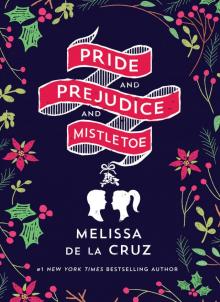 Pride and Prejudice and Mistletoe
Pride and Prejudice and Mistletoe Serpent's Kiss
Serpent's Kiss The Au Pairs
The Au Pairs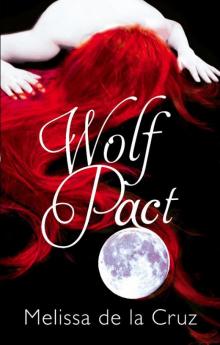 Wolf Pact
Wolf Pact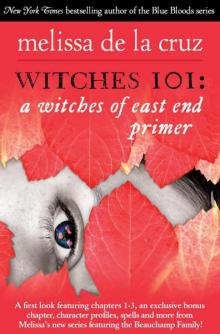 Witches 101: A Witches of East End Primer
Witches 101: A Witches of East End Primer Jealous?
Jealous?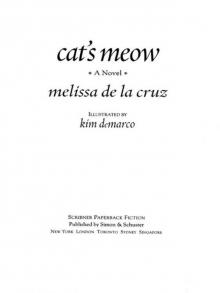 Cat's Meow
Cat's Meow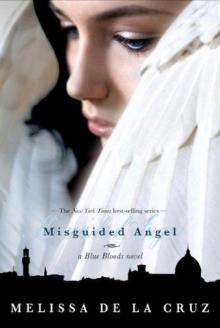 Misguided Angel
Misguided Angel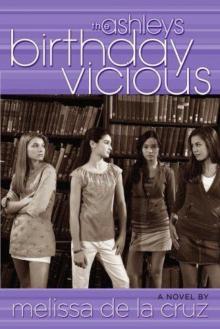 Birthday Vicious
Birthday Vicious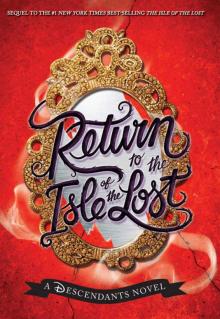 Return to the Isle of the Lost
Return to the Isle of the Lost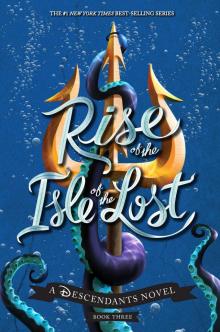 Rise of the Isle of the Lost
Rise of the Isle of the Lost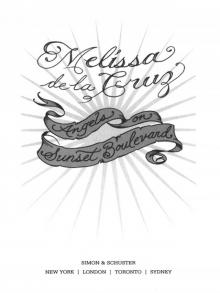 Angels on Sunset Boulevard
Angels on Sunset Boulevard Double Eclipse
Double Eclipse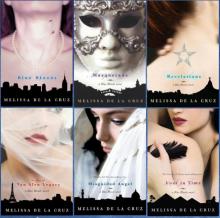 Blue Bloods
Blue Bloods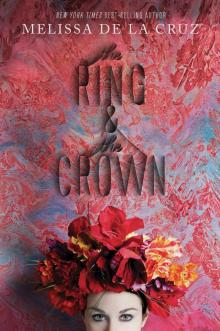 The Ring and the Crown
The Ring and the Crown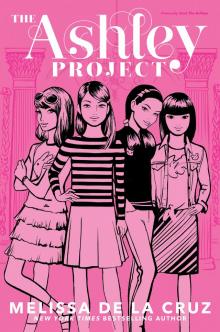 The Ashleys
The Ashleys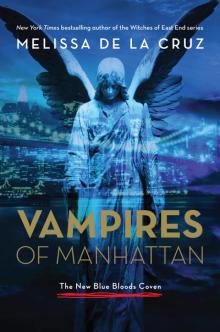 Les vampires de Manhattan
Les vampires de Manhattan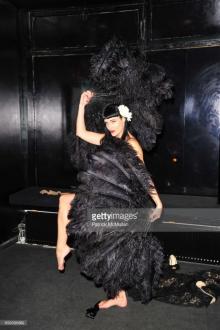 The Van Alen Legacy
The Van Alen Legacy Sun-Kissed
Sun-Kissed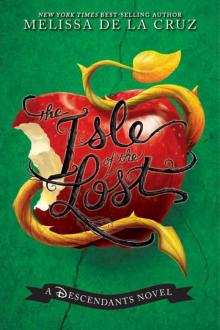 The Isle of the Lost
The Isle of the Lost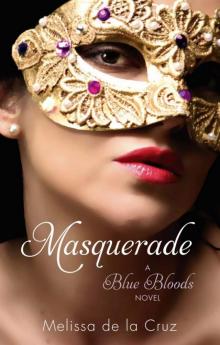 Masquerade
Masquerade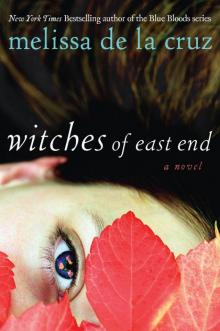 Witches of East End
Witches of East End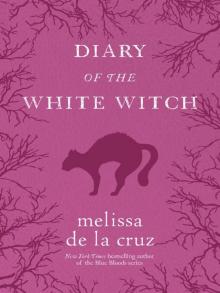 Diary of the White Witch
Diary of the White Witch Crazy Hot
Crazy Hot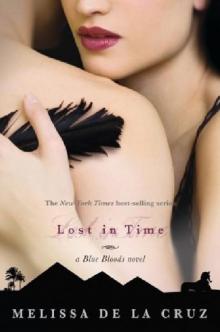 Lost in Time
Lost in Time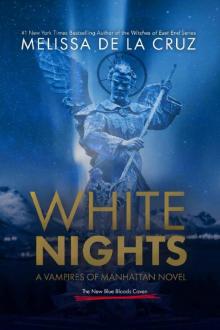 White Nights: A Vampires of Manhattan Novel
White Nights: A Vampires of Manhattan Novel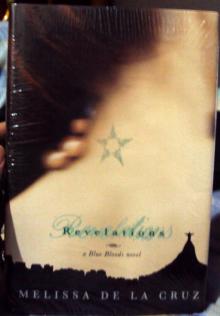 Revelations
Revelations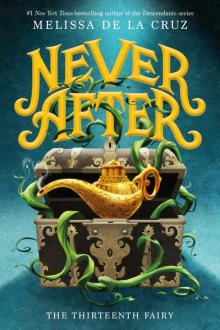 The Thirteenth Fairy
The Thirteenth Fairy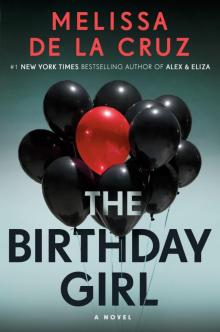 The Birthday Girl
The Birthday Girl Lip Gloss Jungle
Lip Gloss Jungle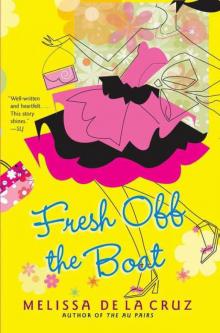 Fresh Off the Boat
Fresh Off the Boat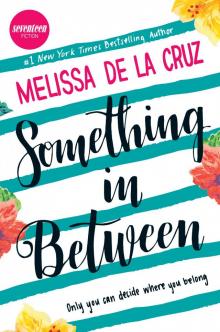 Something in Between
Something in Between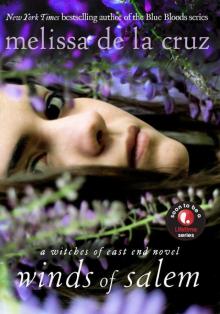 Winds of Salem
Winds of Salem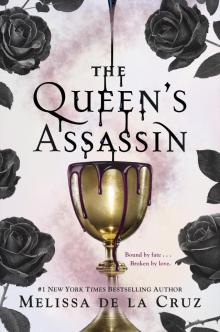 The Queen's Assassin
The Queen's Assassin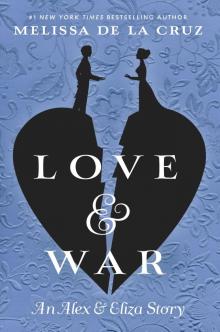 Love & War
Love & War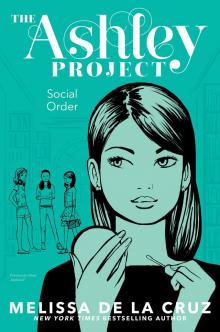 Social Order
Social Order Skinny Dipping
Skinny Dipping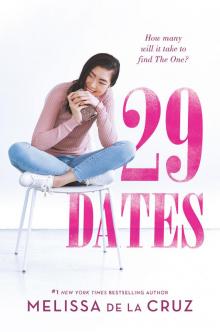 29 Dates
29 Dates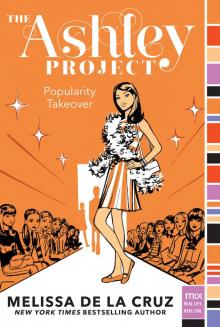 Popularity Takeover
Popularity Takeover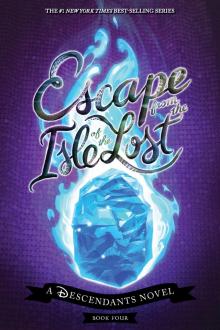 Escape from the Isle of the Lost
Escape from the Isle of the Lost Beach Lane
Beach Lane Bloody Valentine
Bloody Valentine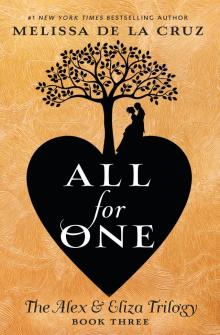 All for One
All for One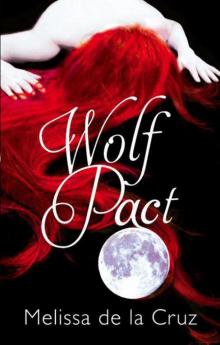 Wolf Pact: A Wolf Pact Novel
Wolf Pact: A Wolf Pact Novel The au pairs skinny-dipping
The au pairs skinny-dipping Lip Gloss Jungle (Ashleys)
Lip Gloss Jungle (Ashleys) Crazy Hot (Au Pairs)
Crazy Hot (Au Pairs)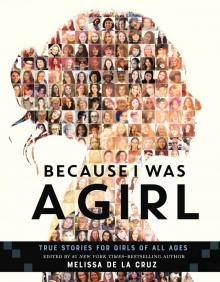 Because I Was a Girl
Because I Was a Girl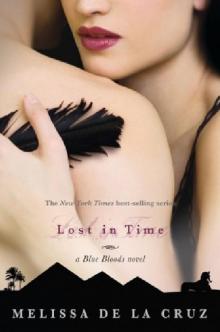 Blue Bloods 6 - Lost in Time
Blue Bloods 6 - Lost in Time Sun-kissed (Au Pairs, The)
Sun-kissed (Au Pairs, The)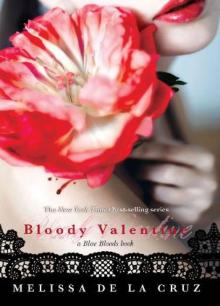 Bloody Valentine bb-6
Bloody Valentine bb-6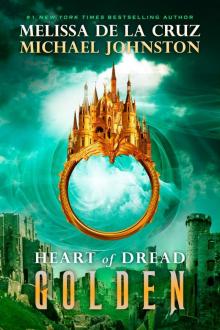 Golden
Golden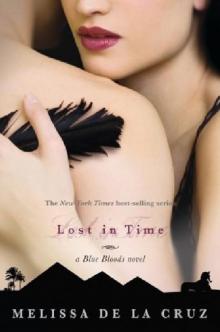 Lost in Time_A Blue Bloods Novella
Lost in Time_A Blue Bloods Novella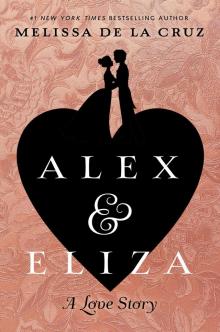 Alex and Eliza--A Love Story
Alex and Eliza--A Love Story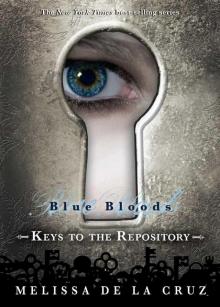 Blue Bloods: Keys to the Repository
Blue Bloods: Keys to the Repository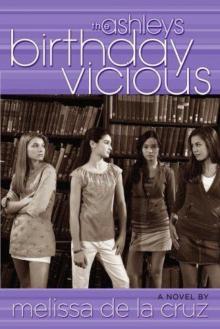 Birthday Vicious (The Ashleys, Book 3)
Birthday Vicious (The Ashleys, Book 3)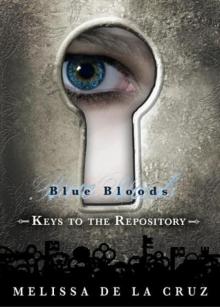 Keys to the Repository
Keys to the Repository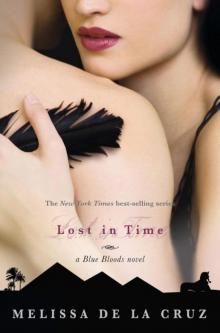 Lost In Time (Blue Bloods Novel)
Lost In Time (Blue Bloods Novel) Stolen
Stolen Girls Who Like Boys Who Like Boys
Girls Who Like Boys Who Like Boys the au pairs crazy hot
the au pairs crazy hot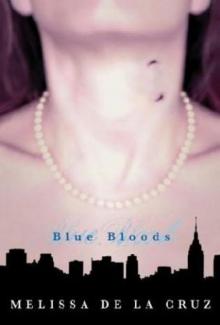 Blue Bloods bb-1
Blue Bloods bb-1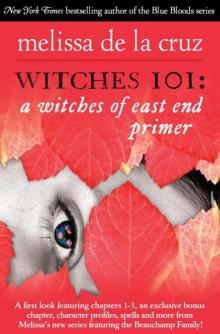 Witches 101
Witches 101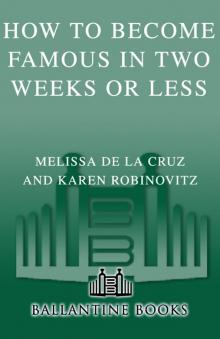 How to Become Famous in Two Weeks or Less
How to Become Famous in Two Weeks or Less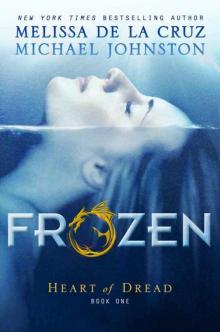 Frozen hod-1
Frozen hod-1 Jealous? (The Ashleys, Book 2)
Jealous? (The Ashleys, Book 2)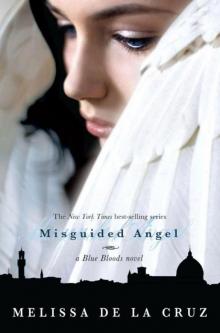 Misguided Angel (Blue Bloods)
Misguided Angel (Blue Bloods)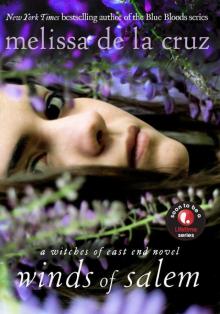 Winds of Salem: A Witches of East End Novel
Winds of Salem: A Witches of East End Novel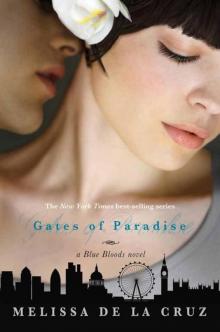 The Gates of Paradise
The Gates of Paradise Beach Lane Collection
Beach Lane Collection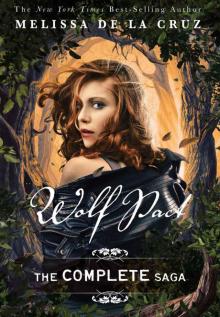 Wolf Pact, The Complete Saga
Wolf Pact, The Complete Saga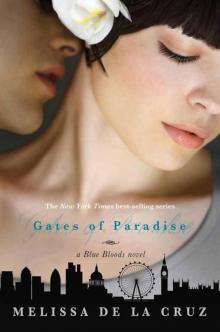 Gates of Paradise, The (Blue Bloods Novel)
Gates of Paradise, The (Blue Bloods Novel)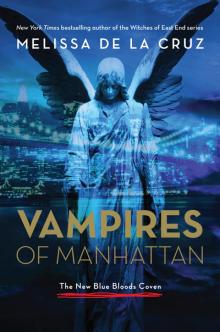 Vampires of Manhattan
Vampires of Manhattan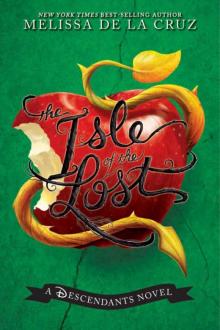 Isle of the Lost
Isle of the Lost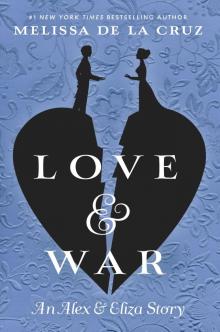 Love & War_An Alex & Eliza Story
Love & War_An Alex & Eliza Story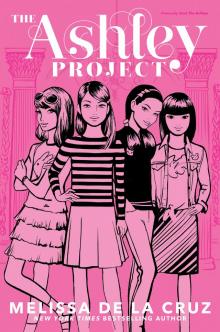 The Ashley Project
The Ashley Project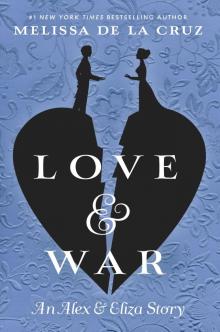 Love & War--An Alex & Eliza Story
Love & War--An Alex & Eliza Story